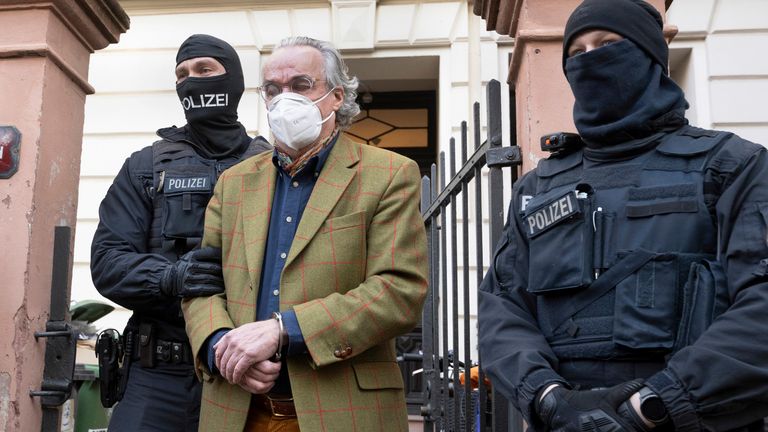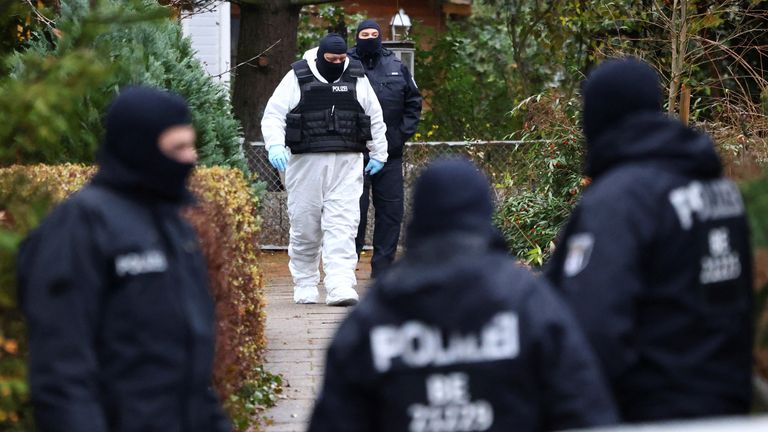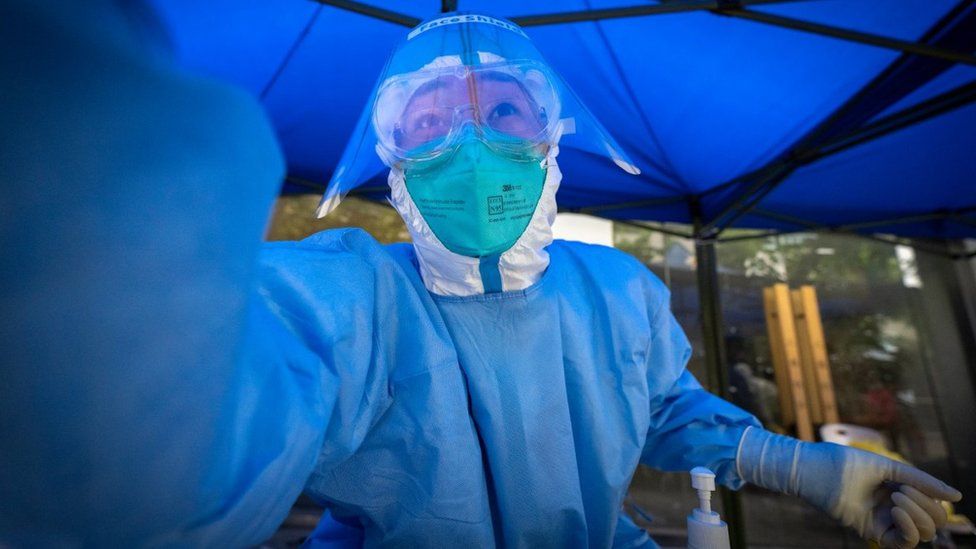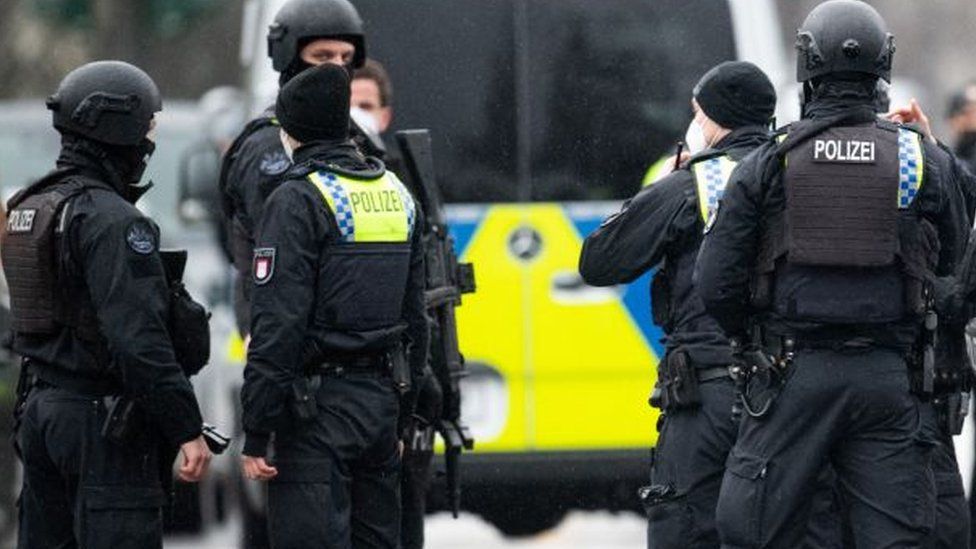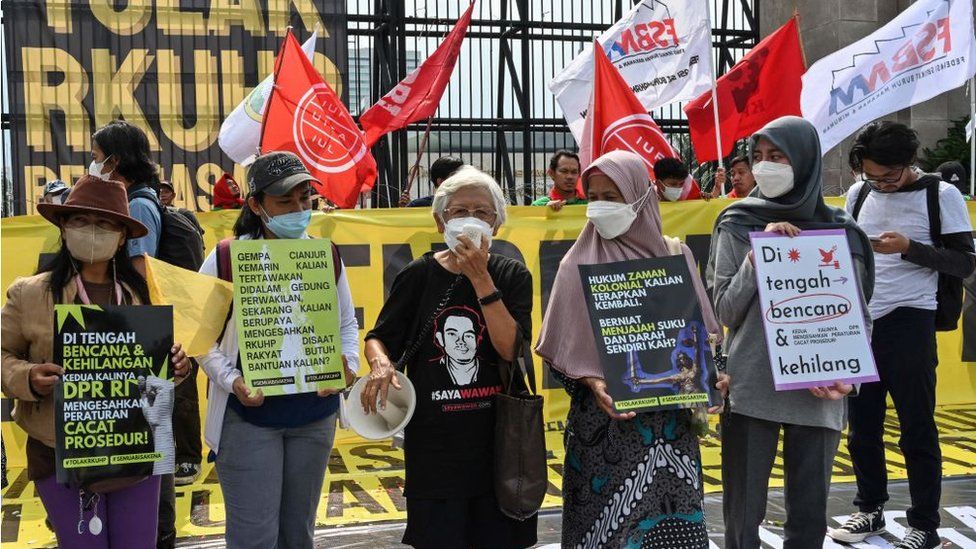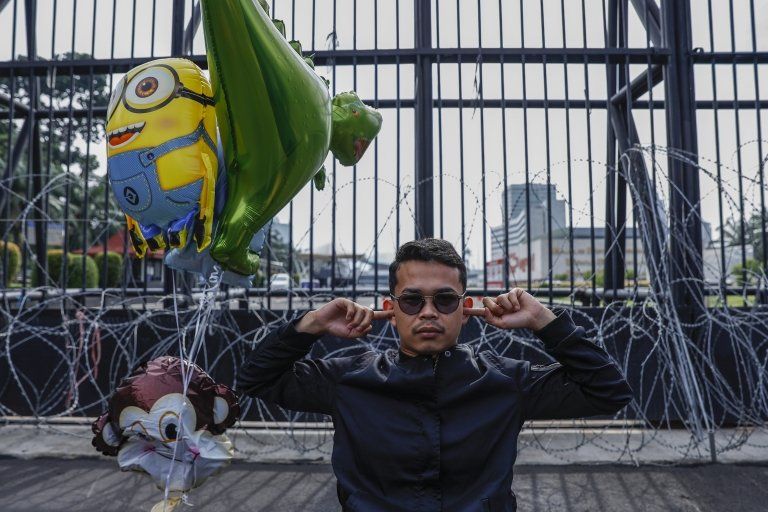Around 3,000 police officers have carried out raids across Germany to stop an alleged plot by a far-right terrorist group to overthrow the government.
Federal prosecutors said 25 suspected members and supporters of the Reichsburger group - the so-called Reich Citizens movement - were detained during the raids in 11 of the country's 16 states early on Wednesday.
Twenty-two German citizens were detained on suspicion of "membership in a terrorist organisation", and three others, including a Russian citizen, are suspected of supporting the group.
The Reichsburger movement brings together several far-right groups whose aim is to get rid of the current government and replace it with their own.
According to the authorities members of the group have been preparing to "carry out actions based on their ideology" since November 2021.
Armed police are reported to have stormed up to 100 properties across Baden-Wuerttemberg, Bavaria, Berlin, Hesse, Lower Saxony, and Thuringia, as well as in the Austrian town of Kitzbuehel and the Italian city of Perugia.
A 71-year-old, who goes by the name Prince Heinrich XIII, and who is thought to come from the long-standing German aristocratic family of House Ruess, is believed to be central to the group's activities and was among those arrested.
Prosecutors said the group planned to install him as Germany's new leader.
According to German news site, Bild, the group had also already selected who would be in charge of various ministries within its new government and he had contacted Russian officials with the aim of negotiating a new order in the country.
Prince Heinrich XIII was allegedly assisted in this by a Russian woman, Vitalia B.
"According to current investigations there is no indication however that the persons contacted responded positively to his request," prosecutors said.
The Russian embassy in Berlin has since denied having links to the far-right group.
The current head of the House of Reuss-Greiz, Prince Heinrich XIV Reuss of Greiz, earlier this year distanced himself from his relative.
In an interview with the German news site OTZ in August, he described him as a "confused old man" and said he had not been in contact with the family for 14 years.
Meanwhile, Nancy Faeser, Germany's Federal Minister of the Interior and Homeland, said the department was "fighting back against the enemies of democracy".
In a post on Twitter, she wrote: "The investigations give us a glimpse into the abyss of a terrorist threat by Reichsbürger.
"The suspected terrorist organisation uncovered today is - according to the state of the investigation - driven by violent overthrow fantasies and conspiracy ideologies.
"The further investigations will provide a clear picture of how far the plans for overthrow had already progressed.
"Militant Reichsbürger are united by their hatred of democracy, of our state and of people who stand up for our community.
"That is why we are taking action against such endeavours with all the consequences of the rule of law. We will continue to take this hard line."
Der Spiegel reported that the barracks of Germany's special forces unit the KSK in the southwestern town of Calw was one of the locations raided.
It has in the past been scrutinised over alleged far-right involvement by some soldiers.
A female judge - identified by prosecutors as Birgit M-W - was also detained during the raids. She is said to have links with the far-right Alternative for Germany party.
Known by its German acronym AfD, the party has increasingly come under scrutiny by German security services due to its ties with extremists.
https://news.google.com/__i/rss/rd/articles/CBMieGh0dHBzOi8vbmV3cy5za3kuY29tL3N0b3J5L2dlcm1hbi1wb2xpY2UtcmFpZHMtdGFyZ2V0LWdyb3VwLXN1c3BlY3RlZC1vZi1mYXItcmlnaHQtcGxvdC10by1vdmVydGhyb3ctZ292ZXJubWVudC0xMjc2MzE4ONIBfGh0dHBzOi8vbmV3cy5za3kuY29tL3N0b3J5L2FtcC9nZXJtYW4tcG9saWNlLXJhaWRzLXRhcmdldC1ncm91cC1zdXNwZWN0ZWQtb2YtZmFyLXJpZ2h0LXBsb3QtdG8tb3ZlcnRocm93LWdvdmVybm1lbnQtMTI3NjMxODg?oc=5
2022-12-07 11:48:45Z
1678611087
